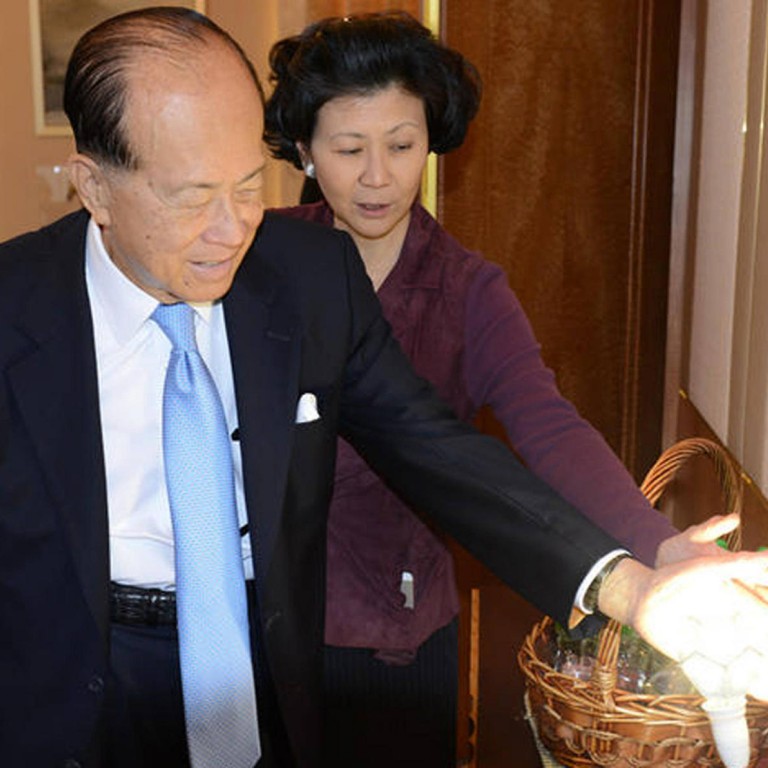
Democracy can boost business if people are open-minded, says Li Ka-shing
Tycoon says people must be open-minded if democracy is to work, but another businessman, Henry Cheng, is not so sure about its benefits
Democracy in Hong Kong would give a "healthy" status boost to the business community, says Li Ka-shing, but only if people are open-minded.
When asked if tycoons would suffer under democratisation, Li replied: "A democratic system will only improve the status of businessmen.
"Hong Kong's government cannot stop supporting businessmen if it hopes for continuous economic growth. A leader with a clear mind would understand that only by creating a good business environment can a society grow stronger and drive the economy."
While agreeing that Hong Kong needs democracy, another tycoon, New World chairman Henry Cheng Kar-shun, expressed reservations about Li's remarks, saying democracy in Southeast Asian countries had not made for better business.
Li said: "With regard to benign democratic transition, I always believe that having the right to choose is a blessing."
A healthy democratic society must value the rule of law, inclusiveness and pluralism, he said. "Democracy will not work effectively in a society with a closed mind, or make society more open."
One important feature of a democratic system was to balance government powers, Li said, but he did not elaborate on specific reforms. "I believe Hongkongers have enough wisdom to make the decision."
Li said that rather than the particular qualities of individual leaders, a good system and the rule of law were the crux in ruling the city. He noted that the city had been ruled since the handover by a businessman, Tung Chee-hwa; a civil servant, Donald Tsang Yam-kuen; and a professional, Leung Chun-ying.
"A society ruled by law can restrain and monitor the power of authority. If Hong Kong no longer has the rule of law, we will have nothing."
"Freedom of the press is also one of our core values. If there is no press freedom in Hong Kong, this will be a great loss for us," Li added, referring to the attack on former chief editor Kevin Lau Chun-to.
When asked what universal suffrage in 2017 would mean to society, Li replied that his views were very different from those of a youngster. "When talking about electoral systems, asking an 85-year-old person to define everything for a 17-year-old is a very dangerous move."
Meanwhile Cheng, who is a standing committee member of the Chinese People's Political Consultative Conference, said: "Why would democracy be good for business? And why would democracy be not good for business?"
Social harmony must be achieved by improving livelihoods, he said, but not necessarily through universal suffrage.
Dr Ma Ngok, a political scientist at Chinese University, said Li's remarks did not necessarily mean he supported the democracy movement.
"Li would not make arguments against the central government, but he, as a property tycoon, has already been very helpful [to the movement] simply by not opposing democracy," he said.


